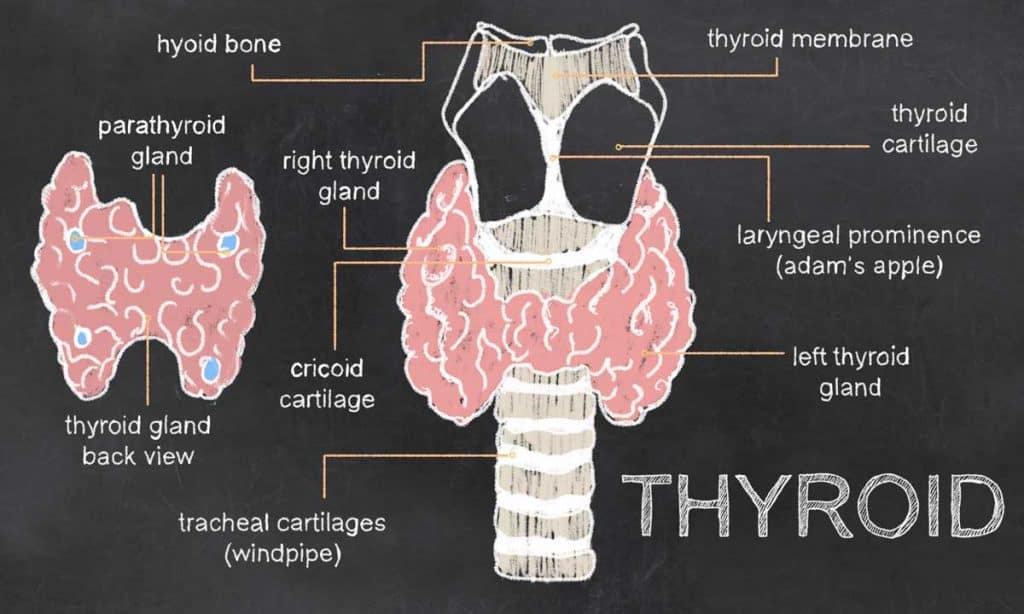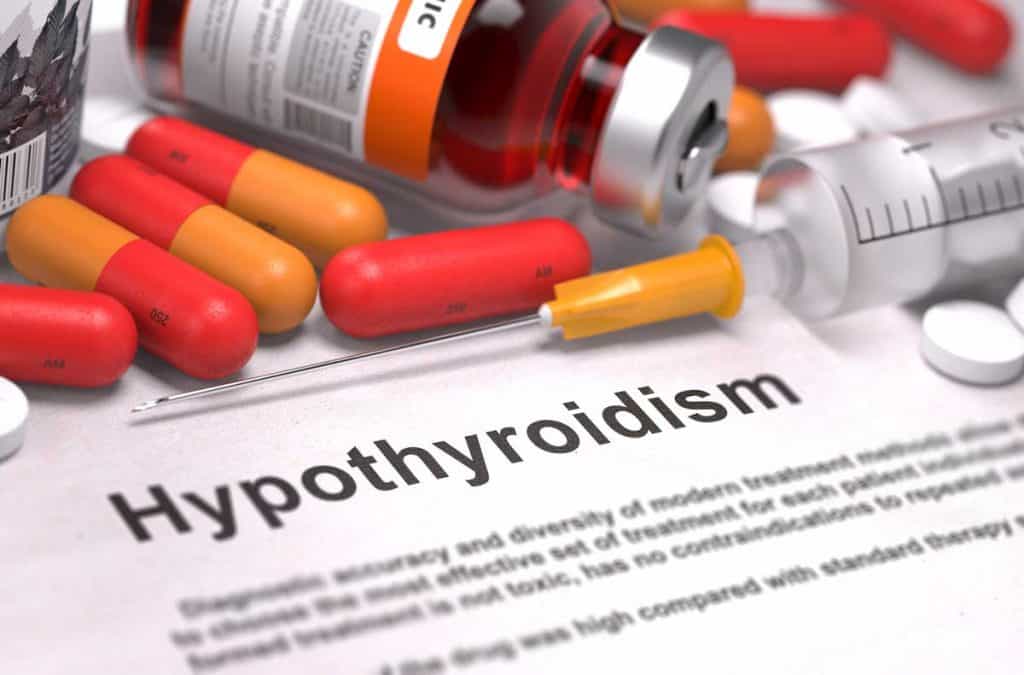
So, how to sleep better with hypothyroidism anyway? When your thyroid is not producing enough thyroid hormones, it can cause your body to slow down and feel sluggish all day. This condition is called hypothyroidism. Deficiency of thyroid hormones can cause daytime fatigue which further drives sleeplessness at night.
The illness can cause other sleep disorders at night such as sleep apnea, sensitivity to temperature, irregular urination, insomnia, and anxiety. According to ABC Australia, approximately 60,000 individuals have thyroid problems each year. Lifestyle often contributes to the causes of thyroid disorders.
Here’s what you need to know about hypothyroidism.

Hyperthyroidism vs. Hypothyroidism
The thyroid is a butterfly-shaped organ lying on your windpipe and it’s responsible for regulating the metabolism of the body. The thyroid also regulates brain functions, nerve and muscle control, calcium and bone development, heart and digestive roles, and mood control.
When the thyroid stops working properly, it can cause hormonal imbalance, and not to mention, sleep loss. So, how to sleep better with hypothyroidism if you must? First, there are various thyroid conditions: hyperthyroidism and hypothyroidism. What’s the difference between the two?
Hyperthyroidism
This happens when the gland produces too much hormone resulting in bodily functions gone haywire and sped up. As a result, you might experience hyperactivity and restlessness. Common symptoms of hyperthyroidism include,
- Excess sweating, hot flashes, and temperature intolerance to heat
- Hungry all the time
- Excessive weight loss
- Mood swings
- Depression, anxiety, and stress, irritability, and nervousness
- Palpitations
- Fatigue and tremors
- Insomnia
Your overactive thyroid will make you feel energetic. However, the feeling is just fleeting. Afterward, you’ll start experiencing downtime, sluggishness, and fatigue.
Hypothyroidism
Hypothyroidism is the most common thyroid problem known to produce less of the needed hormone. The condition constitutes nearly half of the population experiencing thyroid issues. The slow production of the hormone causes your body to slow down, causing you to feel tired all the time. Does that mean you can much do with how to sleep better with hypothyroidism? Let’s read. Common symptoms of hypothyroidism include,
- Temperature sensitivity to cold
- Sleep apnea
- Constipation
- Excessive weight gain
- Aggression, irritability, stress
- Irregular uterine bleeding
- Muscle weakness
- Depression and anxiety leading to insomnia
- Fatigue and sleepiness

Causes of hypothyroidism
People who are at risk of having hypothyroidism often suffer from Type 1 diabetes, multiple sclerosis, or autoimmune disorders among many others. They usually find it hard on how to sleep better with hypothyroidism for sure. However, some are mainly due to lifestyle and medications.
Iodine deficiency. Iodine deficiency leads to hypothyroidism. It’s the one nutrient that helps produce the hormone necessary for your metabolism.
Thyroid surgery. Removing the thyroid (even a part of it) will affect the production of the hormone.
Radiation therapy. Radiation treatment to the neck, such as lymphoma, might damage the cells in the thyroid gland.
Radioactive treatment for hyperthyroidism. Iodine treatment for hyperthyroidism kills over-reactive hormones. Too much can lead to damaging the hormonal count and production.
Autoimmune disease. One example of an autoimmune disease that attacks the thyroid is Hashimoto’s disease. It produces antibodies that can attack the glands.
Medications. Psychiatric medications like amiodarone and lithium can affect the production of the thyroid gland.
Congenital hypothyroidism. Some individuals are born with the condition since birth.
There is a certain population or demographics where hypothyroidism affects these individuals. Anyone can have hypothyroidism, but these groups are highly at risk with the condition:
- Individuals age 60 and older
- Had thyroid surgery
- Received radioactive treatment
- Genetics or hereditary
- Pregnant
Further complications of hypothyroidism
If hypothyroidism is left untreated, it can complicate further into:
- Goiter
- Myxedema
- Infertility
- Birth defects
- Neuropathy
- Heart disease
- Brain disorders

Diagnosis and treatment of hypothyroidism
To know if you’re suffering from hypothyroidism, your doctor might advise you to have a blood test to measure your thyroid levels. Once you’ve experienced symptoms relating to your thyroid issue, never leave it untreated. It can complicate to other illnesses.
Medication is given to patients suffering from hypothyroidism such as levothyroxine. This treatment allows for raising back your thyroid hormones. Effects can be seen as soon as you start treatment. However, the proper dosage might be seen after eight weeks.
Discuss with your doctor if you’re taking any prior medications, diet, or nutrients that can affect the absorption of levothyroxine.

How to sleep better with hypothyroidism
A lack of proper sleep can worsen your hypothyroidism, and the latter can keep you up all night. Do you understand? Sleep and hypothyroidism have a reciprocal relationship and an imbalance between the two can cause turmoil in your body’s daily functions.
So, how to sleep better with hypothyroidism? Sleep experts say to the best way to getting a good night’s rest is to follow regular night routines. Here are some tips.
Oversee your working hours
Shift workers are often at risk for hypothyroidism. Oversee your work hours and ask if you can have a day shift instead. Working at night overthrows the production of your hormones and may cause heavy changes in your sleep routine.
Follow bedtime rituals
To stimulate your sleeping senses, you can take a warm bath to calm yourself down. Drink tea or milk to make you feel drowsy. You can also meditate or do light stretches before hitting the bed.
Keep away from gadgets and blue lights
If you plan to sleep early and well tonight, drop your gadgets at least 30 minutes before hitting the bed. The blue lights emitting from electronics can prevent you from falling asleep.
Keep your bedroom temperature comfortable
Hypothyroidism can make you feel sensitive to cooler rooms. You can keep your room temperature comfortable by instilling good ventilation systems that suits your needs.
De-stress yourself for the night
Stress is a contributing factor to your thyroid hormone. When your stress levels are up, your body releases cortisol, another hormone that slows down the body’s metabolic rate. What’s more, by calming yourself down, you get to avoid negative
Invest in quality mattresses or bedding
Your beddings can also be a factor for a good night’s sleep. Investing in quality mattresses or pillows can alleviate discomforts such as snoring, sleep apnea, muscle pain, and more. Sleeping on new linen can even relieve you from depression and stress, studies show.





